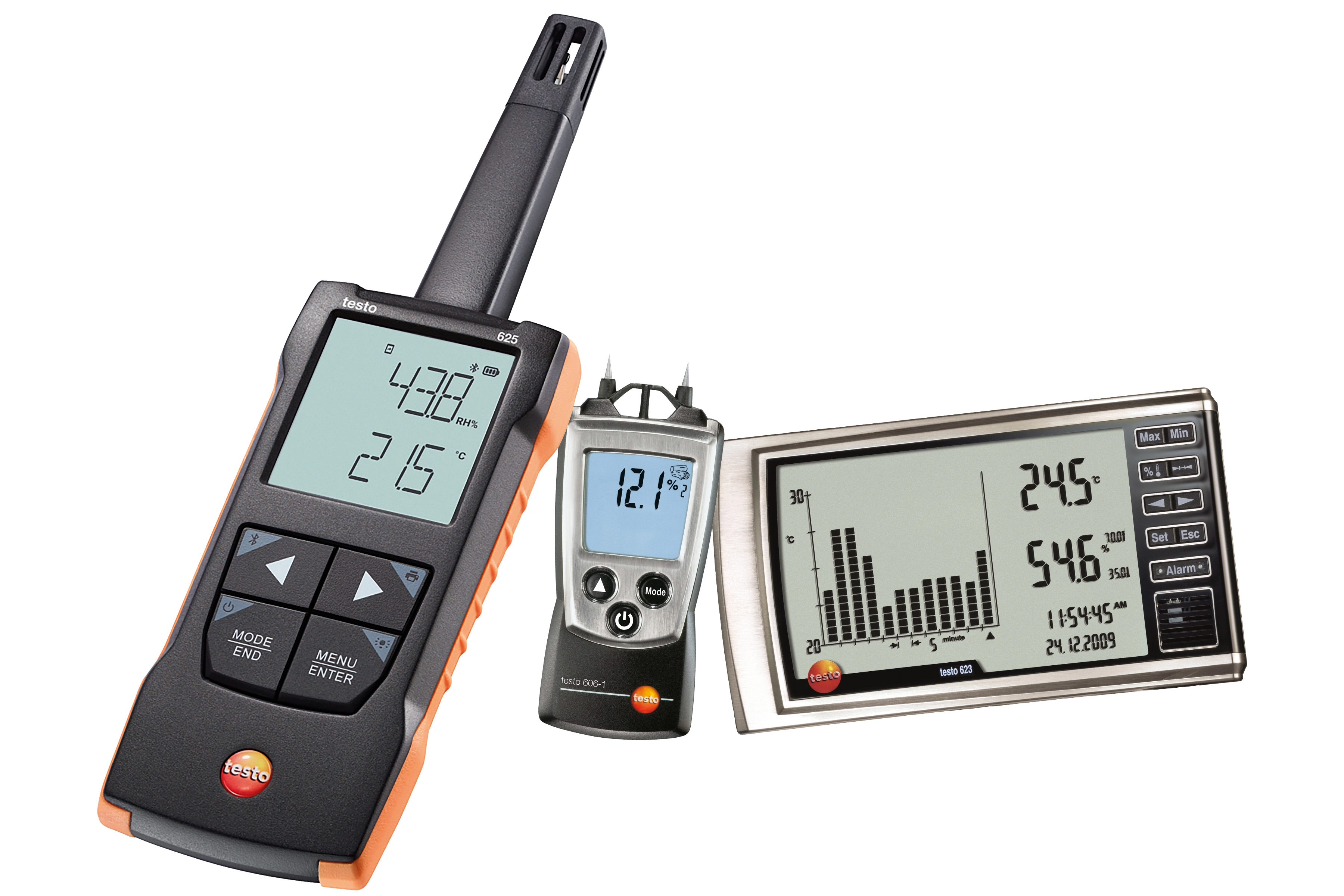Top 10 Advantages of Using a Moisture Meter for Precise Measurements in your house
The Ultimate Guide to Wetness Meters: A Comprehensive Overview and Just How They Can Conserve You Money
In the world of structure upkeep, building and construction, and various industries, the importance of properly gauging wetness levels can not be overemphasized. Moisture meters offer as crucial devices in identifying and checking moisture material in materials, helping in avoiding costly problems and making sure the quality of items. Understanding the subtleties of different kinds of moisture meters, their applications, and the possible cost-saving benefits they supply can be a game-changer for services and professionals alike. Finding just how these gadgets can not just improve processes but likewise add to financial savings is a trip worth embarking on.
Types of Wetness Meters
Numerous kinds of moisture meters are available for different applications in different markets. One usual type is the pin-type dampness meter, which gauges the electrical resistance between two pins placed right into a material. This type is appropriate for timber, drywall, and various other structure products. Pinless moisture meters, on the other hand, use electro-magnetic sensing unit plates to check a bigger area without causing damage to the material's surface area. Moisture Meter. These meters are suitable for promptly analyzing moisture degrees in huge locations such as wall surfaces and floorings.

Infrared dampness meters measure the thermal buildings of a product to identify its dampness content non-invasively, making them beneficial for applications where pin or pinless meters might not be suitable. Recognizing the different kinds of moisture meters offered can aid industries select the most ideal device for their specific wetness dimension demands.

Advantages of Using Dampness Meters
Wetness meters provide important benefits in properly analyzing and keeping an eye on wetness degrees in varied products and settings. One of the key advantages of using dampness meters is the avoidance of prospective damage caused by excess dampness.
In addition, utilizing wetness meters can result in increased power performance. By determining areas with high dampness degrees, such as leakages or bad insulation, adjustments can be made to boost energy conservation and lower energy prices. In agricultural setups, wetness meters play an important role in maximizing crop yields by making it possible for farmers to monitor soil dampness levels and make educated watering choices. On the whole, the benefits of making use of wetness meters span throughout various markets, supplying affordable solutions and advertising better quality assurance methods.
Just How to Choose the Right Wetness Meter
When selecting a moisture meter, it's vital to guarantee that the meter is suitable for the specific product you will be testing. Various products have differing electrical residential properties that can affect dampness readings, so picking a meter designed for your material is crucial for exact results. By carefully reviewing these aspects, you can choose a wetness meter that satisfies your needs and supplies accurate dampness measurements for your tasks.
Appropriate Methods for Moisture Meter Use

Cost Savings Through Moisture Meter Applications
How can the strategic utilization of moisture meters bring about considerable price savings across various industries? Dampness meters play an essential role in price financial savings by preventing possible damages and guaranteeing quality assurance in different fields. In the farming market, dampness meters aid in identifying the optimal time for collecting crops, preventing excess or over-drying dampness that can affect the end product's high quality. This accurate surveillance assists farmers prevent unneeded losses and optimize their yield.
In a similar way, in building, dampness meters assist protect against pricey damages by spotting wetness degrees in building products, such as wood or concrete, which can cause architectural issues otherwise dealt with without delay. By identifying issue locations at an early stage, contractors can take restorative steps to avoid substantial fixings or replacements, ultimately saving time and visit this site right here cash.
In addition, in the food processing market, dampness meters are important for checking item quality and making sure conformity with safety and security laws. By properly measuring dampness content in food, makers can protect against spoilage, maintain freshness, and decrease waste, causing considerable price financial savings. Overall, the tactical application of wetness meters is a useful financial investment that can result in significant expense reductions and boosted effectiveness across different markets.
Verdict
Finally, dampness meters are beneficial devices for detecting and measuring wetness levels in various materials. By utilizing the right dampness meter and adhering to correct strategies, customers can properly stop expensive damages caused by excess dampness. Spending in a high quality wetness meter can cause substantial price financial savings over time by identifying potential concerns early and allowing prompt removal. Eventually, moisture meters are essential tools for preserving the integrity and long life of materials and frameworks.
Dampness meters serve as essential tools in spotting and monitoring moisture material in products, helping in protecting against expensive problems and ensuring the top quality of products. Infrared wetness meters gauge the thermal properties of a material to establish its moisture material non-invasively, making them valuable for applications where pin or pinless meters may not be ideal.Moisture meters use very useful advantages in precisely keeping an eye Visit Your URL on and analyzing wetness degrees in varied materials and environments. In agricultural setups, dampness meters play a crucial role in enhancing plant yields by enabling farmers to keep track of dirt wetness degrees and make educated watering choices.In verdict, moisture meters are useful devices for measuring and spotting moisture levels in various materials.